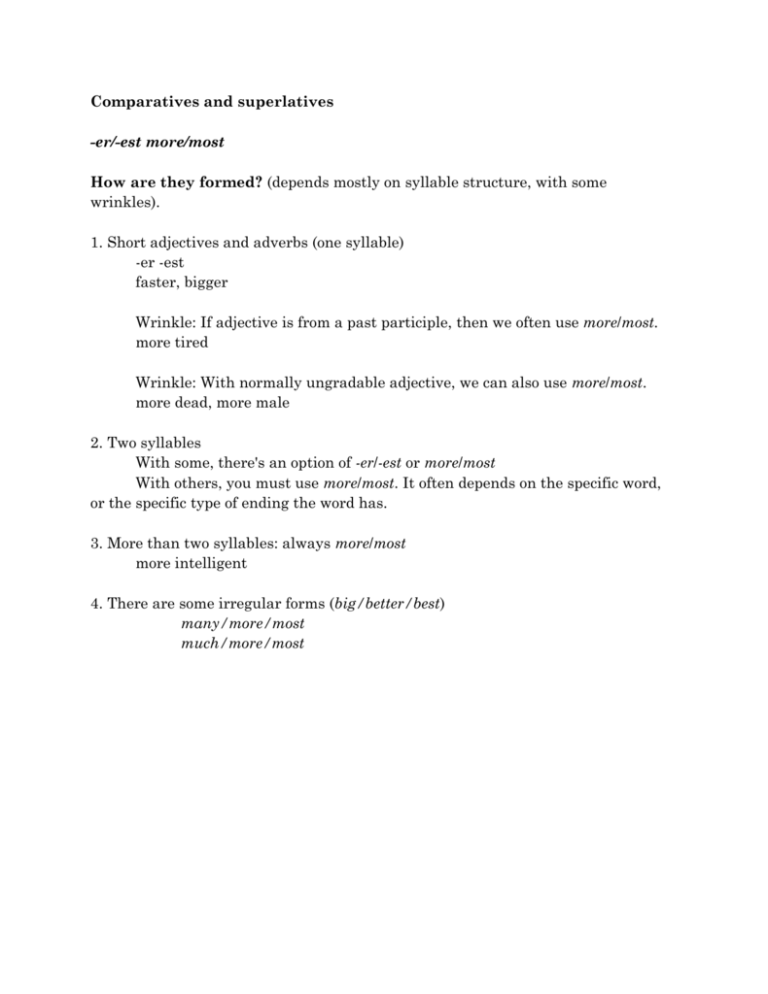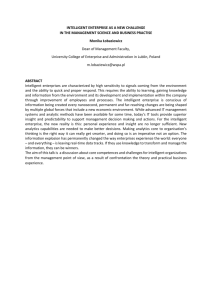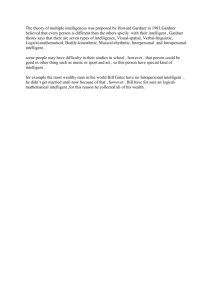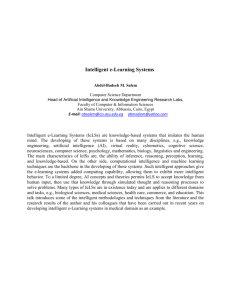lecture 6
advertisement

Comparatives and superlatives -er/-est more/most How are they formed? (depends mostly on syllable structure, with some wrinkles). 1. Short adjectives and adverbs (one syllable) -er -est faster, bigger Wrinkle: If adjective is from a past participle, then we often use more/most. more tired Wrinkle: With normally ungradable adjective, we can also use more/most. more dead, more male 2. Two syllables With some, there's an option of -er/-est or more/most With others, you must use more/most. It often depends on the specific word, or the specific type of ending the word has. 3. More than two syllables: always more/most more intelligent 4. There are some irregular forms (big/better/best) many/more/most much/more/most External syntax: where do they come in sentences? X verb comparative than Y Maths was more difficult than spelling. X verb the superlative type class Everest is the highest mountain in the world. [Exercise: Using either (a) the Web, or (b) the Brown corpus, or (c) the on-line British National Corpus, collect at least 100 examples of comparatives and 100 of superlatives with more/ most. Of these, how many follow one of the two patterns given in the book. Can you make any observations about the ones that don't follow the pattern?] Comparative degree modification more generally Scales, regions, reference points 1. In a general region (very intelligent) 2. At a contextually determined reference point (this /that intelligent) 3. Compared to a relative standard as intelligent more intelligent less intelligent The relative standard often defined n an as- or than-construction 4. Compared to a region defined (usually) by result too intelligent intelligent enough [Note order switch] so intelligent The result-region is usually given as a result clause (that-clause, or an infinitival structure) Separation expressions With more (-er), less, and too we can indicate the degree of separation from the comparison point or region. far more intelligent three pounds heavier much less important a little bit too hot [NOTE order switch] The separation expressions are: way, far a quanitifier: much, several, many, a lot, etc. a measure (three pounds, a little bit) Degree modification of nouns There are limitations and idiosyncracies here: [NOTE the order switches with a] A very big man A bigger man As big a man That big a man * That big men * The as big men * Several as big men Too small a pencil So creative a teacher Such big pancakes Such a big pancake Two such honest people Nouns treated as gradable (genius, idiot, hothead, prima donna, writer, composer, etc. etc.) Not only adjectives and adverbs, but also nouns can be treated as gradable and thus the degrees on the scale can be compared. Usually, we use of before the nouns, thus converting the noun to a prepositional phrase. Fred isn't as much of a hothead as Mary. Harry is enough of an idiot. I'm a little bit of a liar. He is so much more of a bureaucrat than she is. These only work in singular. *The older employees are so much more of bureaucrats than the young employees.






